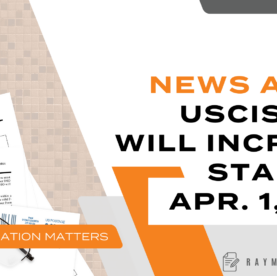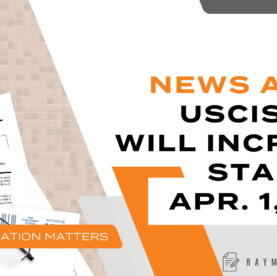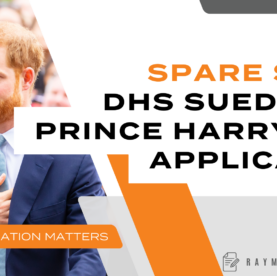Weekly Immigration Round-Up: Organizations Sue to Stop High Wage-Based Visa System; Biden Administration Drops Health Insurance Mandate for New Immigrants; White House to Admit Small Number of Vulnerable Immigrants into United States

Lawsuit Filed to Block H-1B Visa Wage Priority Rule
On Monday, multiple organizations filed an action in a Washington, D.C., federal court to block the implementation of a wage-based rule that would replace the H-1B visa lottery system – designated for high-skilled foreign workers – with a program that favored higher-paid positions. The rule, originally introduced by former President Trump, was to begin in March 2021, but the Biden administration has delayed implementation until at least the end of the year, stating that it needs time to develop and implement the changes.
The plaintiffs – a group comprised of nonprofit organizations and various trade groups, including Physicians for American Healthcare Access, Humane Society of New York, Dentists for America, and others – asserted that the rule favored workers with private companies in expensive urban areas and would make it difficult for nonprofit organizations to compete for foreign employees.
In putting forth the rule, USCIS originally declared that the H-1B program was being exploited by employers and that the lottery system made it difficult for businesses to make hiring plans and attract the best foreign workers. Critics of the current H-1B visa rule stated that the new rule would deprive companies in a wide range of industries that are also located in lower-cost areas of the ability to meet their hiring needs and that priority wage levels improperly value employees primarily by their salaries.
Health Insurance Requirement for New Immigrants Rescinded
In a recent announcement, President Biden revoked a proclamation that barred entry to immigrants who were not able to prove they had health insurance or would be able to cover health care costs. The original proclamation had been issued by former President Trump in October 2019 and required all intending immigrants to provide proof of U.S. health insurance within 30 days of arrival in the United States or provide proof of financial assets to pay for “reasonably foreseeable medical costs.”
In November 2019, a federal judge blocked the health care requirement before it could take effect, but at the end of 2020, the Ninth Circuit Court of Appeals upheld the proclamation. After President Biden took office, the rule has not been enforced.
Biden Administration to Permit Vulnerable Migrants Entry into the U.S.
In an exception to the current policy that blocks most families and single adult crossings at the U.S. and Mexico border, the Biden administration announced that it would allow up to 250 “particularly vulnerable” immigrants into the U.S. every day. Those who would benefit from this program will include those that are ill, families with very young children, and immigrants who had been threatened and/or attacked while waiting in Mexico. This exception is part of a negotiation between the American Civil Liberties Union and the U.S. government over the enforcement of measures taken by the Centers for Disease Control and Prevention intended to stop the spread of COVID-19.
A spokesperson for the Department of Homeland Security said that the current administration is working to streamline a system for “identifying and lawfully processing particularly vulnerable individuals” who qualify for an exception under Title 42. These individuals would join certain unaccompanied children and families who have already been allowed to enter the U.S.
If you have any questions about this blog post or any other immigration concerns, please feel free to contact me at wcmenard@norris-law.com or 484-544-0022.





